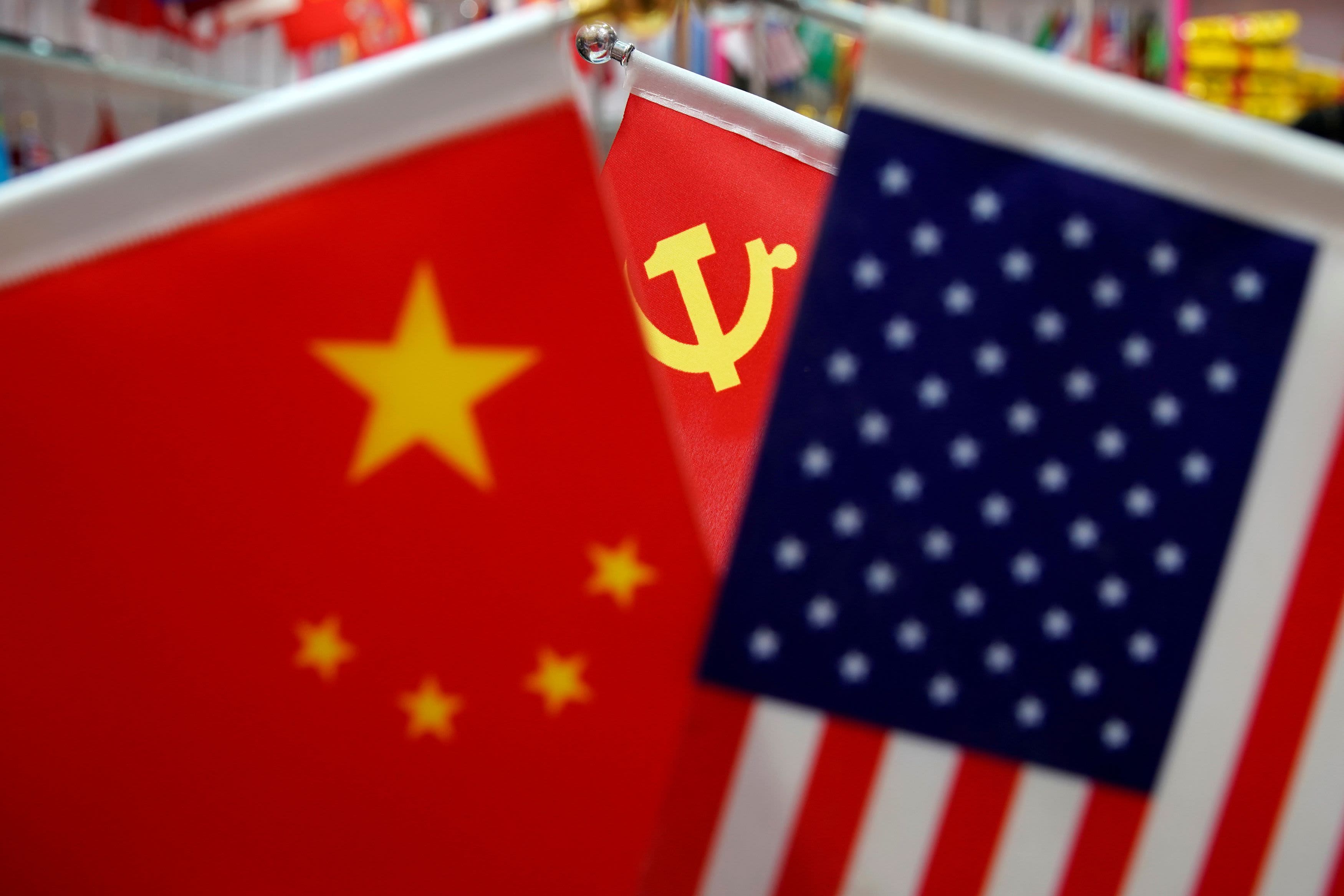The flags of China, U.S. and the Chinese Communist Party are displayed in a flag stall at the Yiwu Wholesale Market in Yiwu, Zhejiang province, China, May 10, 2019.
Aly Song | Reuters
China is ‘more assertive abroad’
In contrast to U.S. foreign policy under Trump, White House Press Secretary Jen Psaki said Biden’s administration will begin its China policy with “patience” and consultations with allies. But she said Xi’s speech doesn’t change the U.S. position on China, whether regarding trade or technology.
“We’re in a serious competition with China,” Psaki said at a regular press briefing Monday. “What we’ve seen over the last few years is that China is growing more authoritarian at home and more assertive abroad. And Beijing is now challenging our security, prosperity, and values in significant ways that require a new U.S. approach.”
U.S. needs to decide how it’s going to deal with a more assertive and aggressive Chinese Communist Party.
Isaac Stone Fish
founder of Strategy Risks
Tensions between China and the U.S. escalated under Trump, who used tariffs and sanctions in an attempt to address long-standing complaints about unfair Chinese business practices. What started as a dispute on trade soon spilled over into technology, finance, human rights and the origins of the coronavirus pandemic.
China’s growth has continued regardless. Despite friction with the U.S. and challenges from the coronavirus pandemic, China still managed to report GDP growth of 2.3% last year, sign the world’s largest trade deal with its Asian neighbors and wrap up negotiations with the EU on a major investment agreement.
“Beijing has become a more important link globally,” said Isaac Stone Fish, founder of Strategy Risks, a New York-based firm which examines businesses’ exposure to Beijing.
“The United States is comparatively less strong vis-a-vis China than a few years ago, and China is likely to continue to close that gap,” Fish said. The “U.S. needs to decide how it’s going to deal with a more assertive and aggressive Chinese Communist Party.”
Different practices at home
Back in 2017, just days before Trump took office and began to disrupt conventional U.S. relations with other countries, Xi upheld China as a supporter of greater economic integration globally in an address to the World Economic Forum. It was the first time a Chinese president attended the event.
A year after that speech, Xi abolished limits on terms for his leadership role. He led celebrations in October 2019 for the 70th anniversary of Communist Party rule in China.
The Communist Party commemorates its 100th anniversary this year, and essentially all official communication in Chinese within the country emphasize the party’s leadership.
Notably, Xi’s speech on Monday did not mention the Communist Party by name. Critics said the vague remarks calling for more respect ignored Beijing’s tightened control within its borders.
“Economic coercion, disinformation campaigns, repression in Hong Kong and Xinjiang, blocking Western media and social media, and more reveal China’s call for tolerance as hollow hypocrisy,” Scott Kennedy, senior advisor and China export at the Center for Strategic and International Studies in Washington, D.C.
Reports of human rights abuses in Xinjiang in the far western part of China have emerged in the last few years. Peaceful protests in the semiautonomous region of Hong Kong turned increasingly violent in late 2019, and the central Chinese government strengthened its control of Hong Kong with a new national security law that took effect in 2020.
Covid-19, which first emerged in late 2019 in the Chinese city of Wuhan, turned into a global pandemic that likely triggered a global recession last year.
What’s left for cooperation
Throughout the ups and downs of the U.S.-China relationship during Trump’s administration, Beijing has maintained it remains open to discussion with the U.S. and other countries.
Xi said Monday that China is committed to opening its market further to foreign businesses and resolving disputes through negotiation.
Xi’s desire to cooperate with the US on issues like Covid-19, climate change, and macro-economic policy coordination seems genuine, and the Biden administration may be willing to pursue some cooperation in these areas.
Gabriel Wildau
senior vice president, Teneo
On the U.S. side, Biden has said the two countries can work together in areas such as environmental issues and global health, even as both sides are increasingly at odds in their efforts to ensure technological advantages and national security,
“Xi’s desire to cooperate with the US on issues like Covid-19, climate change, and macro-economic policy coordination seems genuine, and the Biden administration may be willing to pursue some cooperation in these areas,” said Gabriel Wildau, senior vice president at consulting firm Teneo.
But Wildau said Xi is aware the Biden administration will likely keep a tough stance on China.
New economic policies in China are the result of the “leadership’s recognition that the external environment has become more hostile, and that China can no longer rely on unfettered access to foreign export markets and imports of advanced technology, regardless of who the US president is,” Wildau said.
